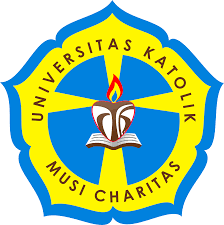The Use Of Online Learning Platforms On Student Classroom Engagement In Public Speaking
DOI:
https://doi.org/10.32524/ukmcic.v1i1.1435Keywords:
online learning platforms, student engagement, public speaking, motivation, communication skillAbstract
Using a theoretical model with OPs as the independent variable, student learning satisfaction (LS) as the dependent variable, and learning quality (IP) and learning engagement (LE) as the mediating variables, this study investigates the effect of OPs on student engagement in the public speaking classroom. The study examines the frequency and motivations for using different online platforms, the perceived advantages of online learning, its impact on motivation, communication skills, and interaction with instructors, as well as recommendations for improvement. It gathers this data through a questionnaire-based survey given to college students. Results show that there is an increasing trend of using technology in public speaking instruction. Online resources improve students' motivation, communication abilities, and overall learning experience. Increasing the frequency of platform usage, improving content and interaction, and sboosting active engagement as well as providing a safe and supportive learning environment. For educators and policymakers looking to optimize the efficacy of online learning platforms in the teaching of public speaking, this study offers insightful information.
References
Amrullah, & Nanzah, Z. (2022). Student-student interaction in online learning during the covid-19 pandemic. Journal of applied studies in language,6(1), 37–45. Retrieved from http://ojs2.pnb.ac.id/index.php/jasl
Anjani, S., D., & Wachyudi, K. (2022). The effects of online learning on students speaking skills achievement. Project (professional journal of english education). 5 (4), 817.
Dufner, S. (2022). Best practices of teaching public speaking online. (master's thesis). Minnesota state university, mankato. Retrieved from https://cornerstone.lib.mnsu.edu/etds.
Hamzah, E., R. (2015). Penggunaan media sosial di kampusdalam mendukung pembelajaran pendidikan https://journal.moestopo.ac.id/index.php/wacana/article/download/89/43.
Hafifah, G., N. (2024). Online interaction in public speaking course: implementation and challenges of mooc in students exchange program. Englisia: journal of language, education, and humanities, 11(2), 29-47. Https://doi.org/10.22373/ej.v11i2.22250
Jain, A., Sharma, P., & Mahar, R., J. (2023). Effects of online platforms on learner's satisfaction: a serial mediation analysis with instructor presence and student engagement. International journal of information and learning technology, 40(5), 453-466. Ttps://doi.org/10.1108/ijilt-02-2023-0017
Maqableh, M., Rajab, l., Guteshat, W., & Deh, M., T., M., R. (2015). The impact of social media networkswebsites usage on students’ academic performance. Communications and network, 7(4), 159-171. Http://dx.doi.org/10.4236/cn.2015.74015
Strayhorn, l. T. (2018). College students' sense of belonging a key to educational success for all students (2nd ed.). Routledge. Https://doi.org/10.4324/9781315297293
Syaputra, A.Y., Azwandi, & Syafryadin. (2023). Improving students’ speaking skills through YouTube videos at the seventh grade of mts n 02 kota bengkulu. Linguistic, English Education and Art (LEEA) journal, 6(2), 372. Https://doi.org/10.31539/leea.v6i2.5450.
Susilowati, n., Mahmud, a., & Sari, p. N. (2022). Communication skill, student engagement and self-efficacy: flow on effect on student online learning. Journal of education technology, 6(1), 67–76. Https://doi.org/10.23887/jet.v6i1.4
Wahyudi, E., Sukma, H., & Mustadi, A. (2021). The effect of online learning process on speaking skill. Al-ishlah: jurnal pendidikan, 13(3), 2607-2614. Https://doi.org/10.35445/alishlah.v13i3.618
Downloads
Published
How to Cite
Issue
Section
License
Copyright (c) 2024 Bryan Oktavianus

This work is licensed under a Creative Commons Attribution-NonCommercial 4.0 International License.










